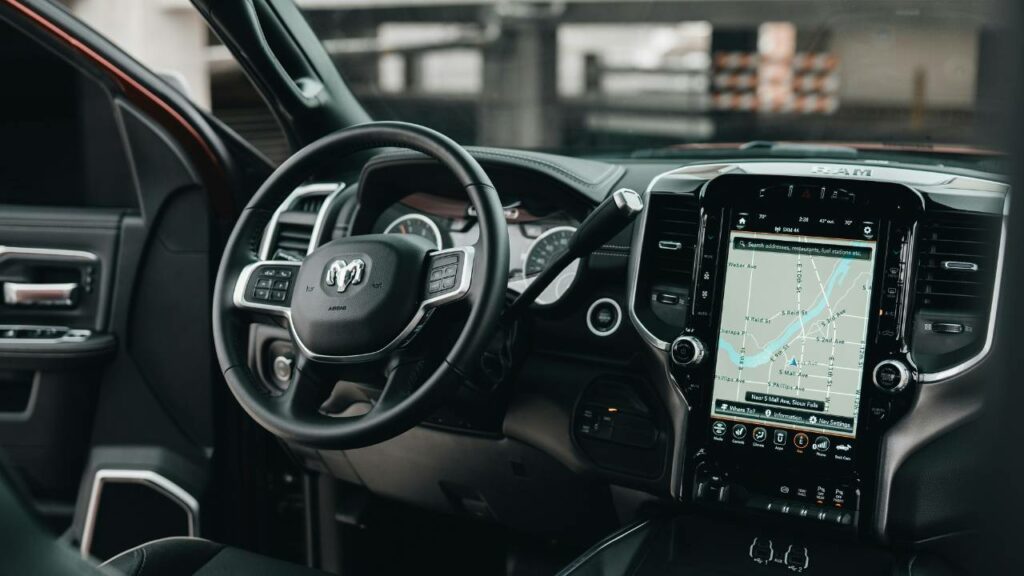Proper fleet management is fundamental to the expansion and efficiency of your business. By effectively managing your vehicles, you can ensure timely deliveries, reduce operating costs, and maintain a reliable service that customers can trust. It’s more than just tracking vehicles; it’s about understanding how every vehicle in your fleet contributes to your company’s overall performance and actively seeking ways to optimise that contribution.
As your business grows, the challenges of managing a fleet become increasingly complex. You must balance vehicle maintenance, driver safety, fuel consumption, and regulatory compliance to keep your operations running smoothly. A well-structured fleet management strategy can lead to significant improvements in productivity and cost savings, directly impacting your bottom line. Through the use of technology and smart planning, your fleet can become a major driver of growth for your company.
Efficiency in fleet operations means doing more with less, and this requires a keen eye for detail and a dedication to constant improvement. By analysing performance data, you can make informed decisions that refine your processes, reduce waste, and ultimately enhance customer satisfaction. Remember, a satisfied customer is often a repeat customer, and through meticulous fleet management, you can secure a competitive edge in today’s fast-paced market.
Fundamentals of Fleet Management
Fleet management is a strategic approach to organising, controlling, and monitoring all aspects of a company’s fleet of vehicles. It’s vital for ensuring efficient operations, maximising fleet performance, and achieving cost-effectiveness. This section will guide you through the core aspects you need to understand.
Role of a Fleet Manager
Your role as a fleet manager is to oversee the entire fleet and make strategic decisions to optimise its performance. You’re responsible for the maintenance and operation of vehicles, ensuring compliance with legal requirements, and improving productivity. It’s your job to keep all vehicles in top condition while controlling costs and enhancing the safety of your drivers.
Fleet Management Software and Tools
To manage your fleet effectively, you’ll need to embrace technology. Fleet management software empowers you by providing real-time data on vehicle location, fuel consumption, and driver behaviour. With these tools, you can schedule maintenance, dispatch vehicles, and generate reports to make informed decisions. Your choices of software and tools can massively impact your fleet’s efficiency and bottom line.
Understanding Fleet Operations
Getting to grips with your fleet operations means knowing every detail of how your vehicles are used daily. You should have a clear understanding of the total cost of ownership, including purchase, fuel, maintenance, insurance, and disposal costs. Your aim is to optimise routes to save time and fuel, reduce wear and tear, and extend the life of your vehicles. You’ll also keep track of compliance issues and ensure that your fleet adheres to industry regulations.
Optimisation of Fleet Performance

Effective fleet management hinges on fine-tuning various elements for optimum performance. Optimising your company fleet cuts operational costs and boosts business efficiency, positioning your enterprise for growth.
Vehicle Performance and Maintenance
Your vehicles are the backbone of your fleet. Regular maintenance ensures they’re running at peak performance and helps prevent costly downtime. Implement a routine schedule that includes checks on engines, brakes, and electrical systems. Utilising telematics can give you real-time feedback on vehicle health, enabling proactive maintenance.
Fuel Usage and Efficiency
One of your most significant recurrent expenses is fuel. To improve fuel efficiency, encourage drivers to adopt smooth driving habits and make sure vehicles are not carrying unnecessary weight. Consider switching to vehicles that offer better fuel economy, and use fuel cards to track and manage fuel expenditures better.
GPS Tracking and Route Planning
Leveraging GPS technology fast-tracks efficiency by providing optimal route planning. It reduces idling times and ensures timely deliveries. Moreover, with advanced route optimization, detours and traffic delays can be avoided, saving time and fuel.
Optimising Tire Performance
Tires impact fuel consumption and safety. To optimise tire performance, you should routinely check your vehicle’s tire pressure and tread depth. Properly maintained tires can significantly reduce fuel costs and enhance vehicle handling. Companies like Shoes for My Car Ireland offer premium tires from top brands, ensuring not just longevity but also high-quality performance. Remember, investing in the right tires is like getting the best shoes for your car; it makes a considerable difference to your journey and your wallet.
Strategies for Cost Management
Effective fleet management aligns closely with your strategic cost control, making it indispensable for driving your business growth. Through focused efforts in reducing operational expenses, astute asset management and acquisition, and strategic purchasing practices, you can establish a more cost-effective fleet management strategy.
Reducing Operational Expenses
To reduce your operational costs, closely monitor your vehicles’ fuel consumption and plan efficient routes. Optimising routes can significantly save on fuel, and therefore cut costs. Prioritise regular maintenance to prevent costly repairs and downtime. This proactive approach ensures these key assets remain in peak condition while minimising future expenditures.
Asset Management and Acquisition
Your asset management strategy focuses on maximising the utility and lifespan of each vehicle. By evaluating usage, you can identify underutilised assets and make informed decisions on whether to reallocate or divest them. For new acquisitions, assess the total cost of ownership — this encompasses purchase price, maintenance expenses, and potential resale value. Investing in vehicles with a strong track record of reliability and higher resale value can be more cost-effective in the long term.
Strategic Purchasing and Procurement
Your approach to purchasing and procurement hinges on striking a balance between quality and costs. By establishing relationships with reliable suppliers, you can benefit from favourable terms and bulk-buying discounts. Additionally, keeping abreast of market trends allows you to purchase at the most opportune times, avoiding premium prices related to seasonal demands or supply shortages. These procurement strategies ensure that your fleet remains equipped without compromising your budget.
Enhancing Safety and Compliance

Proper fleet management includes a focus on driver safety and adherence to legal standards, which are pivotal for your business’s sustained growth.
Driver Training and Performance
Your drivers are the heartbeat of your fleet. Rigorous training programmes ensure they are well-equipped to handle their vehicles safely. Monitoring driver performance regularly with feedback helps maintain high safety standards and encourages continuous improvement.
Maintaining Safety Standards
To protect your drivers and the public, regularly service your fleet and keep up with maintenance checks. This prevents vehicular malfunctions that could lead to accidents. Strict adherence to safety policies, like mandatory rest periods for drivers, further promotes a culture of safety in your operations.
Legal Compliance and Best Practices
Staying well-informed about the latest traffic laws and industry regulations is crucial for your business. Ensuring compliance with these legal requirements helps avoid costly fines and reduces risks of liability. Adopting industry best practices can also improve your fleet’s efficiency and safety record.
Boosting Customer Satisfaction and Business Profitability

Your business growth significantly hinges on how satisfied your customers are and how profitable your services remain. Effective management of your fleet plays a central role in enhancing both these aspects.
Improving Service Quality and Delivery
When you ensure that your fleet is operating at peak efficiency, you’re not only cutting down on delays but also vastly improving the quality of service you provide. Imagine receiving your package days ahead of schedule or getting a service call attended promptly; these experiences are bound to impress you as a customer. Your satisfaction increases, and so does your likelihood of returning for more services. Consistent quality delivery is one of the strongest building blocks for sustained profitability.
Fleet Contribution to Profit Margins
Your fleet’s performance is intricately tied to your service’s profitability. The more efficiently you can manage routes, vehicle maintenance, and fuel consumption, the more you can reduce operational costs. On the flip side, when your fleet runs smoothly, the speed and reliability of your services improve, allowing for premium pricing structures, and thus better profit margins. It’s a virtuous cycle where optimising fleet management leads to cost savings which fund further improvements, all the while keeping your customers happy and engaged.
Real-Time Updates and Communication
In today’s fast-paced world, staying informed in real-time is not just an added benefit; it’s expected. By implementing systems that offer real-time updates to your customers, you’re keeping them in the loop every step of the way. Strikes from lightning-fast notifications about dispatch to live tracking during transit, your customers get the transparency they crave. This level of communication can deeply enhance customer trust and satisfaction, leading to positive reviews and, eventually, a more robust bottom line.
Revolutionising Business Travel
The use of fleet tracking, route optimisation, and real-time communication is revolutionising business travel. Companies can now provide timely pick-ups, minimal wait times, and prompt alerts about arrival times – vastly improving the travel experience. This transformation helps attract and retain customers seeking premium and reliable transportation services.
The Fleet of Tomorrow
As we look to the future, fleet managers must prepare for the inevitability of autonomous vehicles transforming roadways. Self-driving technology will redefine the capabilities and priorities in fleet vehicle design. The future of car design will involve features like advanced sensor arrays, redundancies for steering/braking, and robust computer systems becoming standard. Interior configurations may shift passenger seats to control centers to enable full autonomous functionality. While introducing complexities, self-driving fleets can enable new delivery options, safer transport, and constant coordination. By anticipating the sweeping changes autonomous vehicle design will necessitate, fleet managers future-proof their acquisition strategies. The landscape of tomorrow requires foresight today to integrate these revolutionary technologies seamlessly into existing management practices.
Conclusion
Proper fleet management serves as the backbone of a thriving business by fostering efficiency and reducing costs. Through diligent tracking and maintenance, your fleet remains reliable and ready to meet customer demands. The implementation of advanced technologies like telematics can lead to significant savings on fuel, scheduling, and vehicle downtime.
Collaborative relationships with drivers, rooted in training and safety, not only safeguard your employees but also enhance your company’s reputation. Informed decisions, based on accurate data analysis, enable you to adjust to market changes swiftly, giving you a competitive edge.
Remaining compliant with regulations maintains the legality of your operations and avoids costly penalties. Investing in fleet management yields a return through customer satisfaction and loyalty, as your services become more punctual and dependable. Remember, the growth of your enterprise lies in the wheels of your fleet, and steering them right is steering your business towards success.
